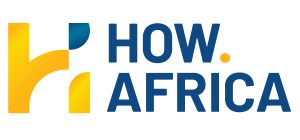What Is Mali by Safaricom?

If you normally make Mpesa transactions using the updated M-PESA Super App, I am sure you have come across Mali and probably asked yourself, or those around you, what that Mali by Safaricom is;
I bet many failed to know or gave inaccurate information about it. But here is the answer: Mali is a money market fund by Safaricom, the largest telecommunications provider in Kenya, which aims to provide a stable return on investment for Mpesa users.
For that, its fund manager, Genghis Capital Limited, seeks to invest in a well-diversified portfolio comprising short-term money market instruments of high quality, like treasury bills and corporate notes, to limit market risk and guarantee capital protection.
How do you register for Mali by Safaricom?
To start investing in Mali, a money market fund by Safaricom, you need to meet some specific requirements to register an account;
“By opting in, you confirm that you are at least eighteen (18) years old and a registered and active M-PESA Subscriber for at least three (3) months immediately preceding the date of your application to open a MALI M-PESA account.
“Genghis reserves the right to verify with Safaricom the authenticity and status of your M-PESA Account and transactions and may decline your application if we are not satisfied that you have met these minimum requirements,” the mobile operator says.
If you meet all the above requirements, you can get the Mali account via the Mpesa app under the ‘Grow’ tab or by visiting *334#, selecting option 5, ‘Financial Services,’ and then clicking on MALI to start free registration.
What is the minimum to invest in Safaricom Mali in 2024?
Mali has a low minimum investment amount, which is affordable for many people in the country. Typically, new investors make an initial minimum investment of Ksh100 and can make top-ups of the same amount or above, which is why the MMF is designed for consumers who seek to invest while saving on Mpesa.
What is the interest rate of the Mali money market?
Safaricom Mali money market fund account yields between 8-10% as you build your savings, and the interest earned is compounded daily and paid at the end of each month.
When a Mali investor requests account liquidation, the funds plus the interest earned get processed after 72 hours, after which the funds arrive on Mpesa when a 15% withholding tax, 2% Fund Manager’s Fees and 0.20 Trustee Fees have already been deducted.

















